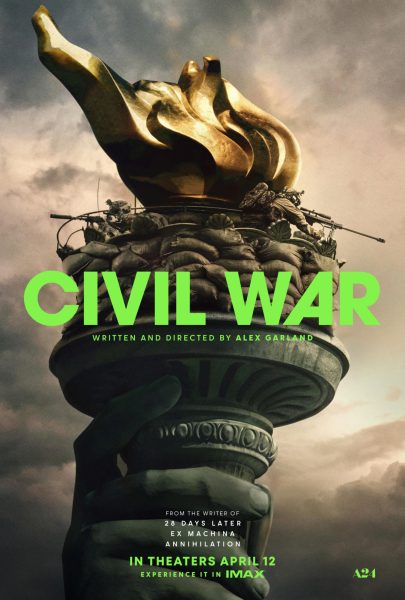Improv: The Next Great Anxiety Treatment
A peek into the research project of AP Research student, Paige Lane
Senior year of high school is one of the most incredibly challenging and rewarding years in one’s lifetime. A rigorous course load, college applications, scholarship applications, sports, clubs, and the plethora of other engagements keeps the senior class exceptionally busy. In the midst of all of this chaos, thirty-four AP Research seniors and I plan to make our hectic lives a bit more crazy by attempting to become published researchers.
Our sophomore year, the students of AP Research signed up for the two year AP Capstone program, beginning with AP Seminar junior year. Seminar, a class dedicated to making high school students into able researchers, taught us the necessary skills to conceive, plan, and execute a research project, and later on, a paper.
As AP Research students, we are expected to develop a research question, inquiring into something that has never been studied before. Then, we construct a feasible method of research in order to find the answer to our question, carry out this method, and synthesize our findings into a final research paper. This is a tall order for anybody, especially high school seniors, but the AP Capstone class of 2017 is excited to conquer this challenge.
Personally, the road to finding a research topic has been a long one. The entire summer, I procrastinated, which in retrospect, was not the best choice. After about a month of searching for the perfect topic, I landed on improv as a treatment for anxiety. Since taking an improv class at The Second City, and witnessing the therapeutic miracle that is improv, I have always had this idea on the back of my mind. The only problem I had left to face was finding a gap in this research that has never been researched before. After looking to my classmates for inspiration, I decided to pursue therapeutic improv within the realm of children. This landed me on the following research question: How can improv be best implemented into public elementary schools in the US to treat and prevent Social Anxiety Disorder (SAD)?
Social Anxiety Disorder is “the extreme fear of being scrutinized and judged by others in social or performance situations.” After hearing this, you may be curious as to how improv can relieve anxiety when the idea of performing comedy on the spot sounds pretty stressful, and even worse for those with SAD. Truthfully, it’s terrifying. However, after my experience with improv, and the research I have already collected, I can confirm that it is therapeutic. Specifically, it is the practice of thousands of odd situations in an environment which de-emphasizes failure, that make improv so helpful. Unlike daily life, in an improv class, failure is celebrated. This allows those with SAD to overcome or lessen their disorder by doing what they fear most without the risk of judgement.
In order to tackle this daunting task, I look to the local elementary schools and research databases for help. The conclusion of my research project will be acquired through interviews and data analysis. I plan to interview at least two elementary school teachers to better educate myself on the fundamentals of the elementary school curriculum from a first hand source and to identify what they perceive to be the stressors of young children. Also, I will interview approximately ten elementary school students in hopes of understanding what they experience anxiety over and what they enjoy about the schooling they are receiving. The second prong of my research will be done through the analysis of previously conducted research. I plan to gather research on anxiety, schooling, improv, and children, and synthesize this with the information I gather from my interviews. From here, I will derive a conclusion and begin writing my final paper.
Taking improv was one of the most rewarding experiences of my life, because from the class, I have become part of a community of hilarious, kind and intelligent kids who I consider some of my best friends. Improv is life changing and I hope my research can help more people realize this, too.
Like me, many of my classmates have adapted their passions into their research. Abbey Trippel, my fellow Research student, is conducting her research on the correlation between helicopter parenting (over parenting) and childhood obesity rates. Trippel is “excited to discover a link between these two variables and publish [her] research.” Other students in the program are researching how film acts as a medium for social change, homelessness in Chicago, environmental destruction in the Colorado mountains, and many more fascinating topics.

Paige is a columnist for The Glen Bard. She has been a member of the newspaper since the beginning of her junior year. She began her career as a columnist...








